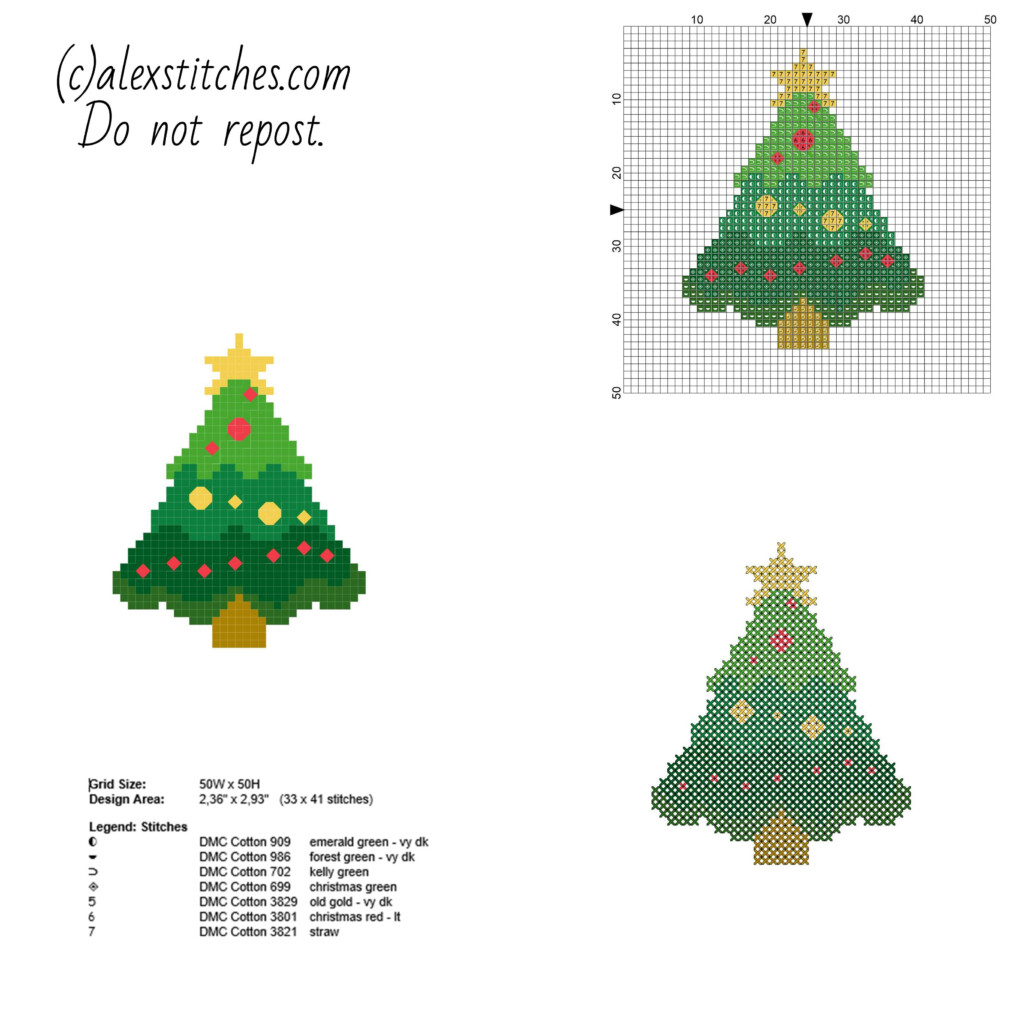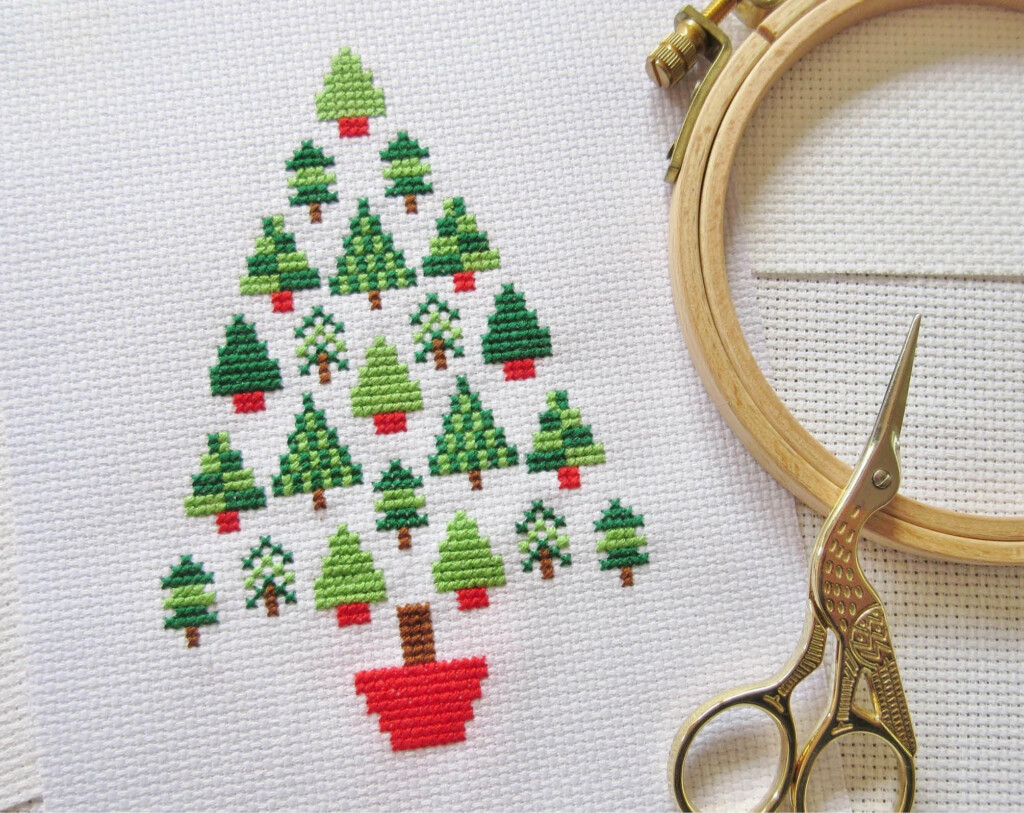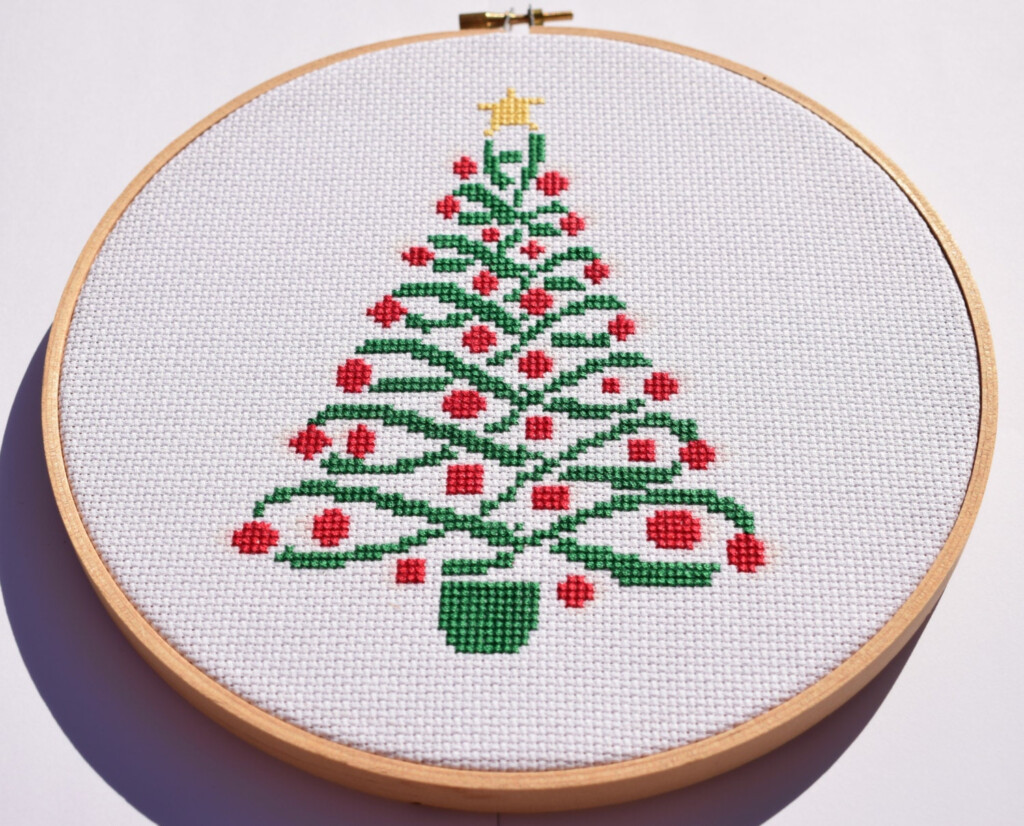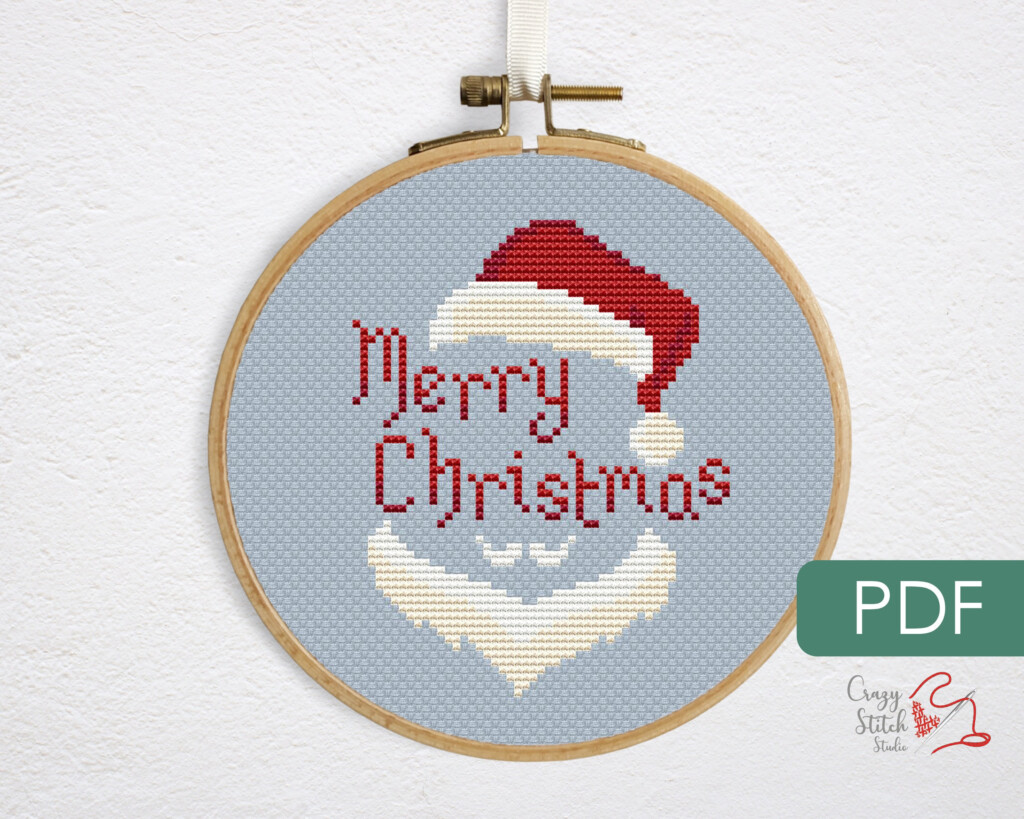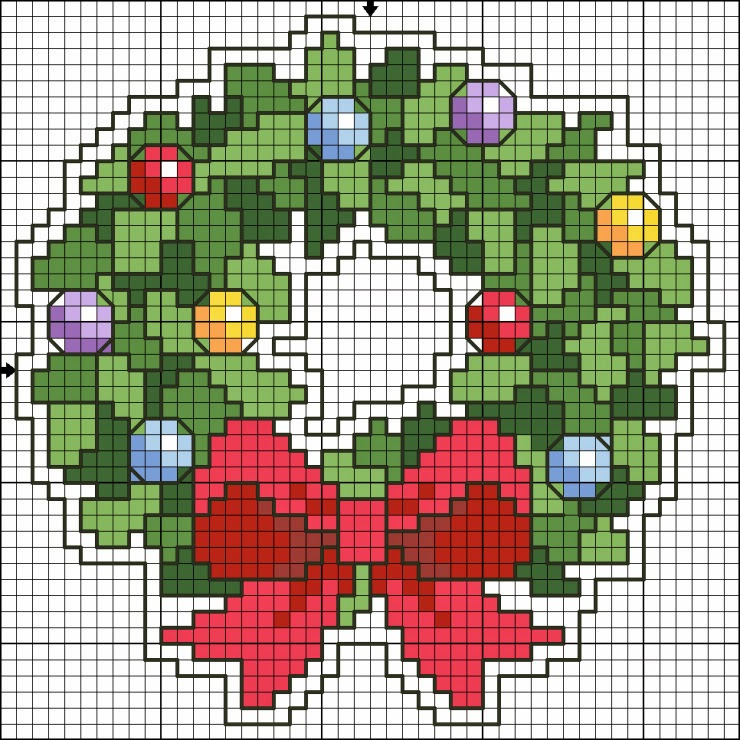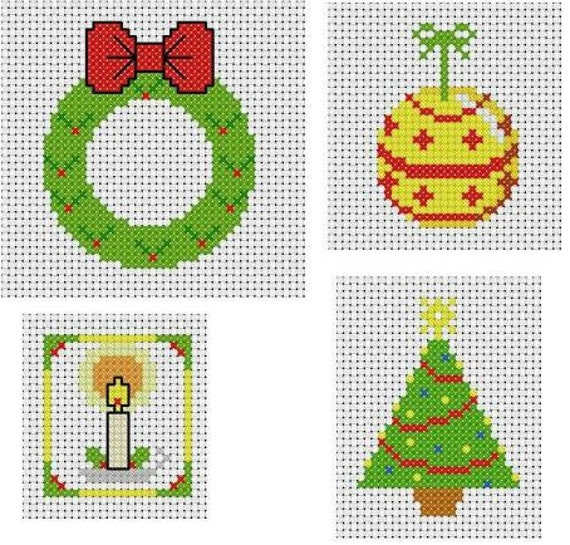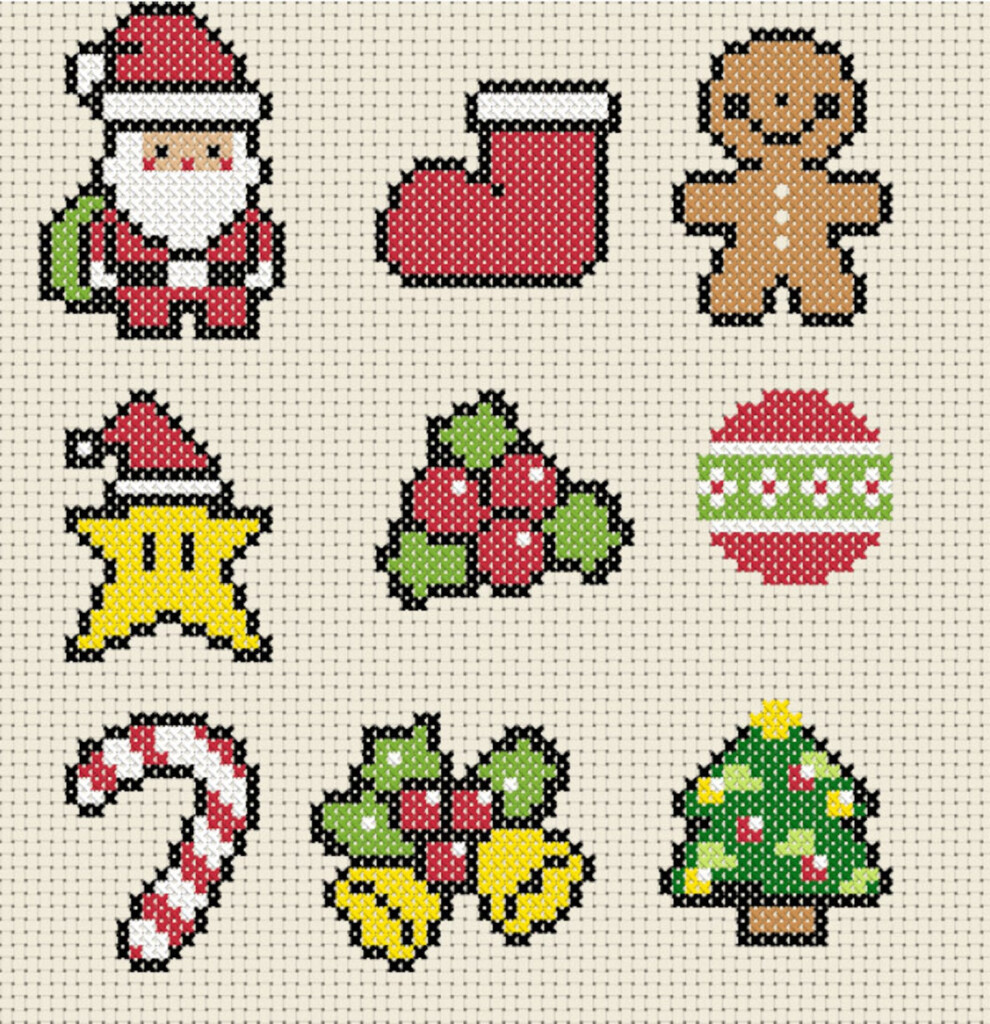Simple Small Christmas Cross Stitch Patterns – Cross stitch is a timeless and relaxing embroidery strategy that enables you to create stunning styles with just a needle, thread, and fabric. Whether you’re a novice or an experienced stitcher, recognizing Simple Small Christmas Cross Stitch Patterns is key to crafting attractive items. In this guide, we’ll explore every little thing you require to know about cross stitch patterns, from crucial products to advanced methods, ensuring that you obtain the confidence to develop intricate and professional-quality designs.
What is a Simple Small Christmas Cross Stitch Patterns?
A Simple Small Christmas Cross Stitch Patterns is a grid-based design that guides stitchers in producing an embroidered image. Each square on the pattern represents a stitch, with different shades and symbols corresponding to certain thread shades. These patterns can vary from simple themes to detailed works of art, supplying an endless variety of innovative opportunities. Recognizing how to check out and adhere to these patterns appropriately is vital for both precision and performance in your sewing tasks.
Why Use a Pattern?
- Uniformity: Ensures uniformity in stitches and design, making your job show up brightened and expert.
- Guidance: Helps beginners adhere to a structured strategy, reducing errors and confusion.
- Innovative Freedom: Allows customization with various color options, making every item unique to the stitcher.
- Scalability: Can be adapted to various fabric dimensions and stitch counts, making it adaptable for different job sizes.
- Performance: Saves time by offering a clear roadmap, helping stitchers prepare their operate in advancement and avoid unneeded blunders.
Products Needed for Simple Small Christmas Cross Stitch Patterns
To begin with cross stitch, you’ll require the right products. Below’s a failure of important tools:
| Material | Summary |
|---|---|
| Fabric | Aida cloth is typically utilized as a result of its easy-to-count grid. Linen and evenweave materials provide finer information, ideal for advanced stitchers. |
| Strings | Embroidery floss, usually DMC, Anchor, or Madeira brands. Offered in thousands of colors to bring layouts to life. |
| Needles | Tapestry needles with blunt pointers to avoid fabric damage. The ideal size relies on fabric kind and personal preference. |
| Hoop/Frame | Maintains fabric tight, protecting against wrinkles and uneven sewing, ensuring consistency in your stitches. |
| Scissors | Small, sharp embroidery scissors for exact thread cutting and cutting excess fabric. |
| Pattern Chart | Printed or electronic Simple Small Christmas Cross Stitch Patterns for support, offering clear directions on stitch placement and shade selection. |
| Light | A well-lit work area helps avoid eye stress and permits better precision in stitch positioning. |
| Thread Organizer | Keeps embroidery floss tangle-free and very easy to access, making shade adjustments a lot more reliable. |
Reviewing a Simple Small Christmas Cross Stitch Patterns
A well-designed Simple Small Christmas Cross Stitch Patterns supplies all the required information to bring your design to life. Recognizing how to interpret a pattern correctly ensures precision and efficiency in your work.
1. Signs and Color Key
Patterns use signs to represent different thread colors. Each icon represents a specific floss color, generally provided in a legend with the thread brand and number. Acquainting on your own with this legend prior to beginning will certainly make sewing much smoother.
2. Grid System
Simple Small Christmas Cross Stitch Patterns are organized on a grid where each square represents one stitch. The darker lines suggest every 10 squares, aiding you count and place your stitches properly. This framework makes certain positioning and avoids mistakes when stitching huge, detailed layouts.
3. Stitch Types
- Full Cross Stitches (X): The standard stitch, developing an X shape that supplies total coverage.
- Fifty Percent Stitches (/): Used for shielding and fine information, producing a smoother slope impact.
- Backstitching (-): Used to describe and define shapes, adding depth and clarity to the design.
- French Knots (o): Adds structure and decorative accents, commonly used for eyes, flowers, and decorations.
- Long Stitches (–): Stitches that extend numerous squares to produce special effects, typically used in specialty styles.
4. Beginning Point
A lot of patterns suggest beginning at the center to make sure appropriate positioning. Locate the center by folding the fabric in half both methods, marking the middle with a water-soluble pen or a small stitch. Starting from the center assists preserve proportion and equilibrium throughout the project.
Fundamental Cross Stitch Techniques
Understanding these methods will improve your sewing performance and results, making certain that your tasks look specialist and polished.
1. Preparing Your Fabric
- Clean and iron fabric prior to beginning to eliminate creases and prospective spots.
- Use a hoop or frame to maintain it tight, stopping misaligned stitches.
- If using Aida cloth, bind the edges with masking tape, fray check, or a zigzag stitch to avoid tearing gradually.
- Consider gridding the fabric with washable fabric pens to assist with positioning.
2. Threading the Needle
- Cut a piece of embroidery floss around 18 inches long to stop tangling.
- Utilize one to three strands, depending on fabric count and wanted protection for optimal outcomes.
- Thread the needle and secure the beginning end with a loop or tiny knot, or use the “loophole method” for a neater back.
3. Sewing Methods
- Row Method: Complete one half-stitch (/) throughout a row, after that return with the other half () to create an X. This works for keeping stitches attire.
- One-by-One Method: Complete each complete X before moving to the next stitch, perfect for patterns with constant shade adjustments.
- Parking Method: Useful for complex designs, allowing stitchers to collaborate with numerous shades without complication.
4. Safeguarding Threads
- Stay clear of knots at the rear of your work; instead, weave the thread under previous stitches for a clean and expert surface.
- Maintain the back cool to prevent bulkiness and uneven tension, which can distort the fabric.
Common Mistakes & & How to Avoid Them
| Error | Remedy |
| Miscounting stitches | Constantly cross-check the grid and make use of a highlighter to mark completed areas. Double-check before moving on. |
| Irregular tension | Maintain stable tension; stay clear of drawing too limited or leaving stitches too loose. Consistency is crucial to professional-looking job. |
| Wrong thread color | Ascertain the pattern key prior to starting each area to stop time-consuming mistakes. |
| Fraying fabric | Protected edges with tape or a sewing equipment zigzag stitch. Using a hoop assists lessen fraying. |
| Messy back | Maintain the back tidy by weaving in loose ends nicely. This will avoid lumps when framing the completed item. |
Download Simple Small Christmas Cross Stitch Patterns
Final Thoughts
Simple Small Christmas Cross Stitch Patterns offer endless opportunities for creativity and workmanship. Whether you’re adhering to a timeless design or developing something distinct, comprehending the fundamentals of reading patterns, choosing products, and developing methods will certainly aid you produce sensational jobs. Maintain exercising, exploring, and most notably, delighting in the process of sewing! Cross stitch is not just a hobby– it’s an art kind that allows you to bring detailed styles to life, one stitch at once.
Happy sewing!
